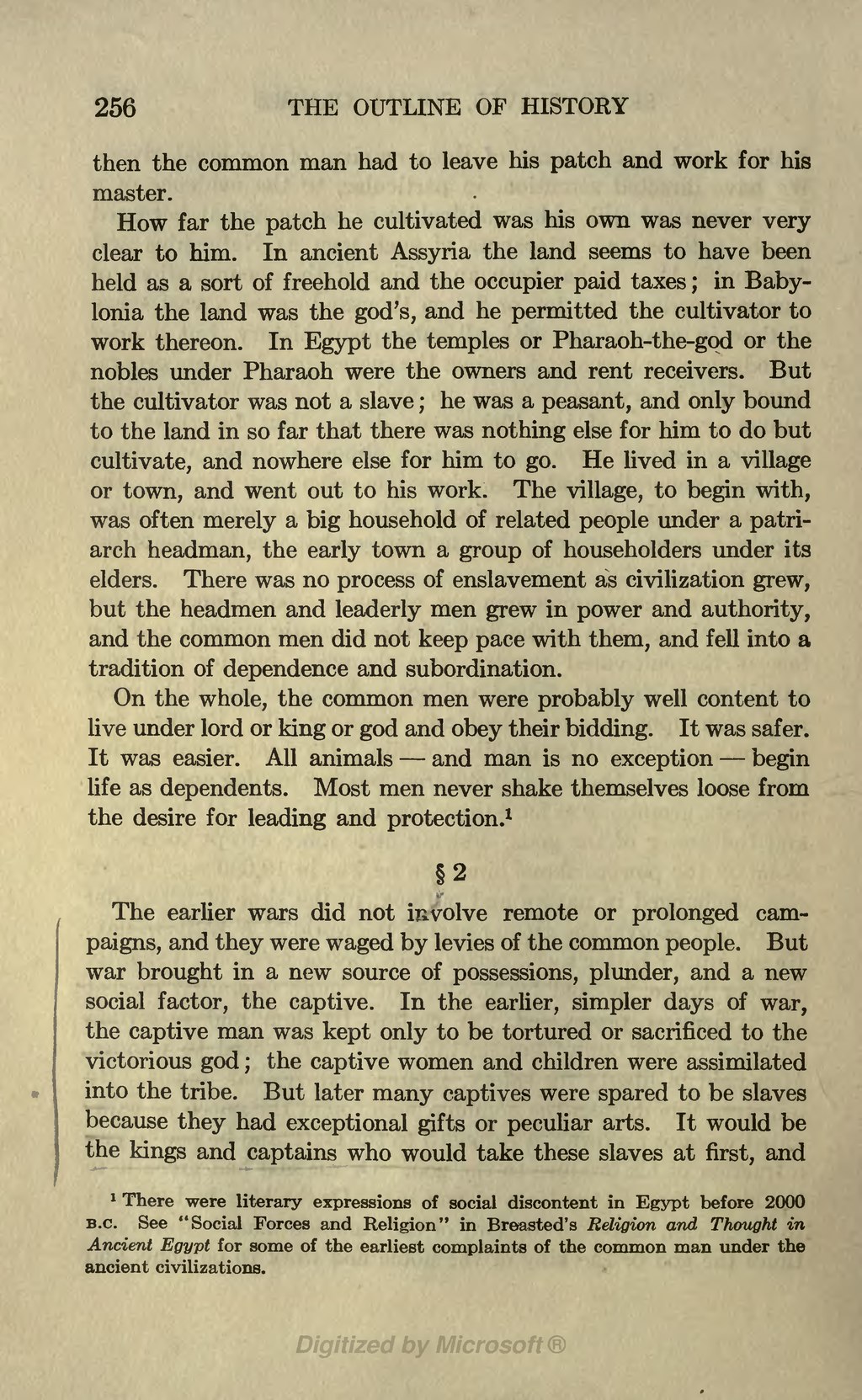then the common man had to leave his patch and work for his master.
How far the patch he cultivated was his own was never very clear to him. In ancient Assyria the land seems to have been held as a sort of freehold and the occupier paid taxes; in Babylonia the land was the god's, and he permitted the cultivator to work thereon. In Egypt the temples or Pharaoh-the-god or the nobles under Pharaoh were the owners and rent receivers. But the cultivator was not a slave; he was a peasant, and only bound to the land in so far that there was nothing else for him to do but cultivate, and nowhere else for him to go. He lived in a village or town, and went out to his work. The village, to begin with, was often merely a big household of related people under a patriarch headman, the early town a group of householders under its elders. There was no process of enslavement as civilization grew, but the headmen and leaderly men grew in power and authority, and the common men did not keep pace with them, and fell into a tradition of dependence and subordination.
On the whole, the common men were probably well content to live under lord or king or god and obey their bidding. It was safer. It was easier. All animals—and man is no exception—begin life as dependents. Most men never shake themselves loose from the desire for leading and protection.[1]
§ 2
The earlier wars did not involve remote or prolonged campaigns, and they were waged by levies of the common people. But war brought in a new source of possessions, plunder, and a new social factor, the captive. In the earlier, simpler days of war, the captive man was kept only to be tortured or sacrificed to the victorious god; the captive women and children were assimilated into the tribe. But later many captives were spared to be slaves because they had exceptional gifts or peculiar arts. It would be the kings and captains who would take these slaves at first, and
- ↑ There were literary expressions of social discontent in Egypt before 2000 b.c. See "Social Forces and Religion" in Breasted's Religion and Thought in Ancient Egypt for some of the earliest complaints of the common man under the ancient civilizations.
